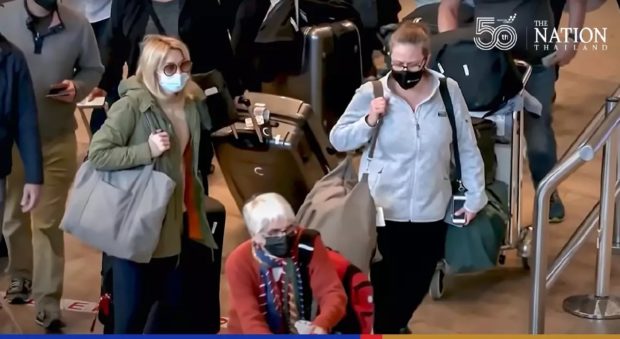DHAKA — As Omicron pushes Western countries towards reopening, Asia is hunkering down, sharpening an East-West divide on the balance between public health, the economy and basic rights and freedoms.
While the highly transmissible coronavirus variant is accelerating the move toward living with Covid-19 in Europe and North America, life in much of the Asia Pacific is little less restricted – and in some cases even more restricted – than at the start of the pandemic.
The widening divide comes even as many Asia Pacific countries boast vaccination rates higher than those of their Western counterparts.
The region’s ultra-cautious stance two years into the pandemic raises questions about its endgame as border controls and strict social distancing rules, although credited with achieving some of the world’s lowest death tolls, inflict growing social and economic costs.
“There is a certain level of Covid-related mortality that the society is willing to accept,” Cho Sung-il, a professor of epidemiology at Seoul National University in South Korea, told Al Jazeera.
“Individually, there is a certain level of Covid-related risk one is willing to accept, to balance against what one has to pay for it, in terms of social distancing plus vaccination. Asians may be valuing life over freedom, if culture matters at all. Maybe because we don’t have the strong memory of civil revolutions risking life for freedom.”
In mainland China, authorities have doubled down on a zero-tolerance approach that has resulted in the near-total shutdown of international travel and the imposition of harsher and more frequent lockdowns.
Hong Kong, which is grappling with its biggest outbreak of the pandemic, has closed schools, bars and gyms and banned dining-in at restaurants after 6:00pm.
The Chinese-controlled territory, long branded “Asia’s World City,” ranks among the most isolated metropolises due to some of the toughest quarantine and border rules on earth.
In Japan, which is reporting close to 80,000 daily cases, borders remain closed to all non-residents, while “quasi-emergency” measures restricting opening hours for bars and restaurants are in place in 34 out of 47 prefectures.
South Korea, which like Japan has avoided full-scale lockdowns throughout the pandemic, requires arrivals to undergo 10 days of quarantine, limits private gatherings to six people, and banned restaurants, bars and gyms from operating after 9:00pm. Authorities, which yesterday reported more than 16,000 cases, are set to review the measures on February 6.
Unlike in most of Asia, Europe and North America are largely open to quarantine-free travel for those who are vaccinated.
Meanwhile, Merck & Co Inc and partner Ridgeback Biotherapeutics said yesterday six lab studies showed their experimental oral Covid-19 drug molnupiravir was active against the fast-spreading Omicron variant, reports Reuters.
The data evaluated the antiviral activity of molnupiravir and other Covid-19 antiviral agents against Covid-19 variants of concern. Molnupiravir is yet to be studied against Omicron in human studies, the companies said.
The coronavirus has killed at least 5,635,702 people globally since the outbreak emerged in China in December 2019, according to an AFP tally compiled from official sources Saturday.
RELATED STORIES
Asia grapples with explosive COVID-19 surge due to Omicron variant
Asian factories take Omicron risks in stride, for now
Asia airlines hope Omicron setback will be short-lived
